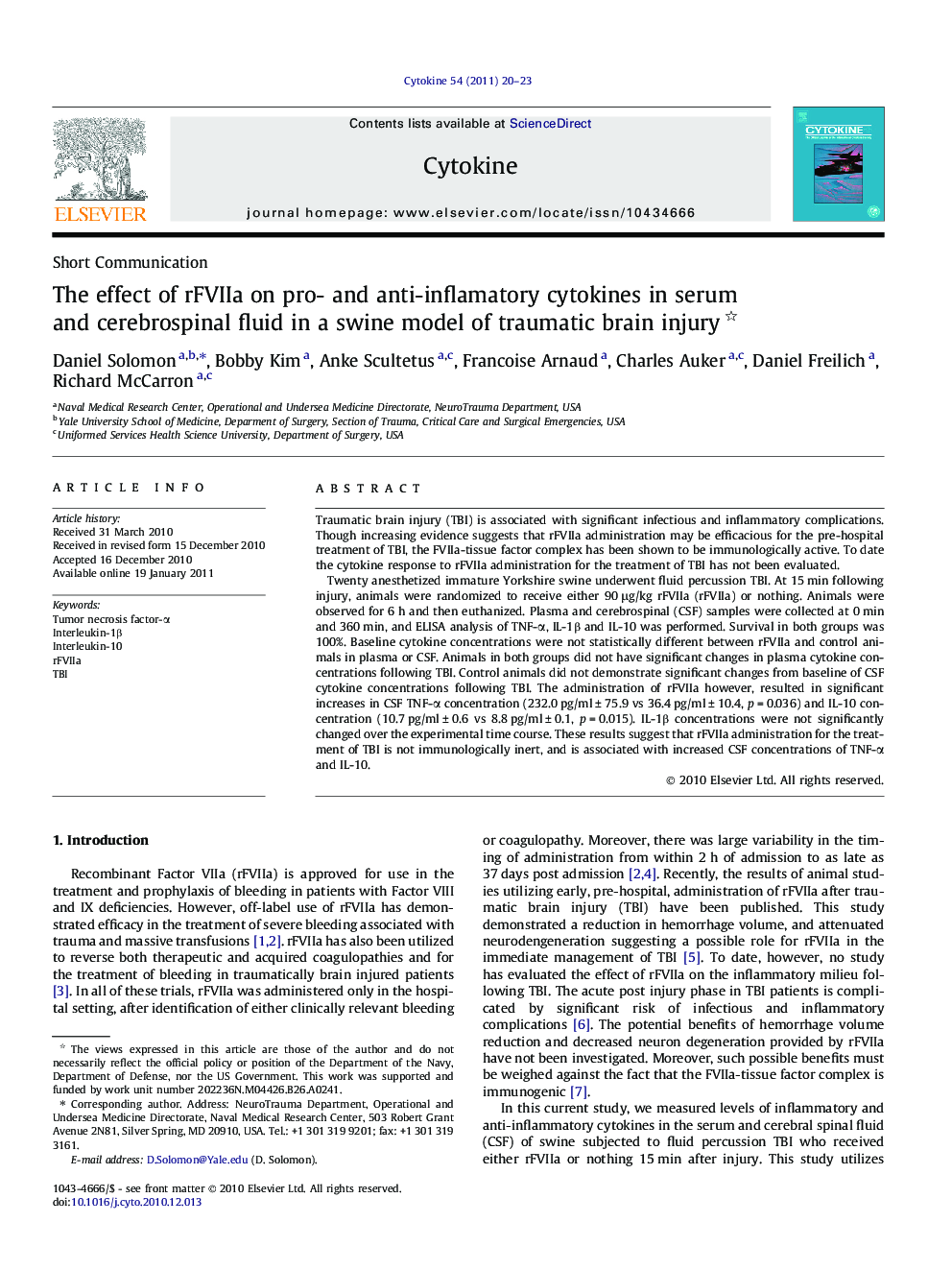| Article ID | Journal | Published Year | Pages | File Type |
|---|---|---|---|---|
| 5898402 | Cytokine | 2011 | 4 Pages |
Traumatic brain injury (TBI) is associated with significant infectious and inflammatory complications. Though increasing evidence suggests that rFVIIa administration may be efficacious for the pre-hospital treatment of TBI, the FVIIa-tissue factor complex has been shown to be immunologically active. To date the cytokine response to rFVIIa administration for the treatment of TBI has not been evaluated.Twenty anesthetized immature Yorkshire swine underwent fluid percussion TBI. At 15 min following injury, animals were randomized to receive either 90 μg/kg rFVIIa (rFVIIa) or nothing. Animals were observed for 6 h and then euthanized. Plasma and cerebrospinal (CSF) samples were collected at 0 min and 360 min, and ELISA analysis of TNF-α, IL-1β and IL-10 was performed. Survival in both groups was 100%. Baseline cytokine concentrations were not statistically different between rFVIIa and control animals in plasma or CSF. Animals in both groups did not have significant changes in plasma cytokine concentrations following TBI. Control animals did not demonstrate significant changes from baseline of CSF cytokine concentrations following TBI. The administration of rFVIIa however, resulted in significant increases in CSF TNF-α concentration (232.0 pg/ml ± 75.9 vs 36.4 pg/ml ± 10.4, p = 0.036) and IL-10 concentration (10.7 pg/ml ± 0.6 vs 8.8 pg/ml ± 0.1, p = 0.015). IL-1β concentrations were not significantly changed over the experimental time course. These results suggest that rFVIIa administration for the treatment of TBI is not immunologically inert, and is associated with increased CSF concentrations of TNF-α and IL-10.
